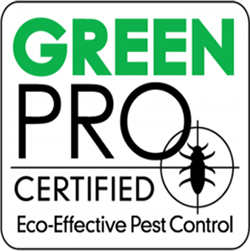Summertime Safety Tips for Ticks
One of the most troublesome pests you can encounter is a tick. The bite from a tick is not only itchy but can also pass on diseases to humans and pets. Lyme disease and other infections are spread from ticks to their victims through a single bite. The best way to avoid risk is to avoid ticks so we've compiled a list of prevention tips.

It's important to know not all ticks transmit potentially serious diseases. Certain species are more dangerous than others, but all are a nuisance and can cause a serious reaction at the location of the bite.
1) Early detection and removal are key to minimizing risk. The sooner you remove a tick, the better. It takes time for the bacteria from tick bites to reach the bloodstream, especially Lyme disease. A tick needs to remain attached for about 36 hours before Lyme disease can be transmitted, so remove any ticks as quickly as you can to lessen the risk. Proper removal methods are important. Do not squeeze the body of the tick, instead grasp its head as close to the skin as possible with tweezers and then pull it away from the skin. It's a good idea to keep it in a sealed container with an isopropyl alcohol-soaked cotton ball for identification in case a serious reaction occurs later.
2) Wear appropriate clothing. Be sure to wear appropriate clothing, especially in wooded areas, and in tall grass or other outdoor spaces where you may be exposed to ticks. Light-colored, fitted outdoor clothing will help so ticks can be easily spotted and keep them from traveling onto your body under the fitted outdoor wear. As soon as you get back inside, shower and check your body for ticks, especially areas on your scalp along the hairline, on the back of the knees, torso, and under your arms.
3) Apply an insect repellent. Certain scents and chemicals will work to repel insects. With the options available, including natural plant-derived formulas, there's no reason to skip applying one of these. Either a DEET or permethrin formula or a natural herbal-based formula will help make your body a place ticks won't want to crawl on. Don't forget to spray shoes and clothing too.
4) Clear yard debris and keep the grass short. Ticks are attracted to overgrown or tall grass where they seek shelter from the heat during the summer days. They also nest in yard debris, such as wood piles and leaf piles. Keeping your surroundings free from these tick attractants will be a good start at prevention measures. Cut grass short and regularly clean up any piles of yard debris, especially around areas that children and pets frequent.
A routine pest control plan is often needed to treat persistent pest problems. Spence’s Pest Control is your trusted central Virginia pest control expert serving the area for over 40 years. Give us a call at (804) 794-7738 and let us handle your pest concerns.












